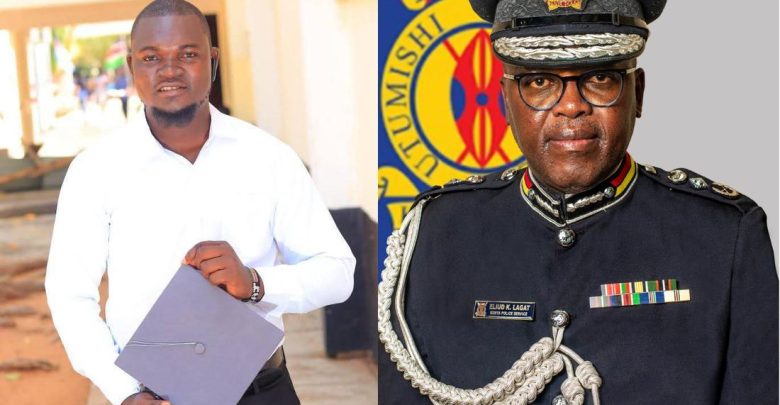Ruto Breaks Silence on Death of Albert Ojwang as Outrage Grows Across Kenya

NAIROBI — Kenyan President William Ruto has broken his silence on the suspicious death of Migori-based blogger Albert Omondi Ojwang, describing the incident as “heartbreaking and unacceptable,” and calling for a full, transparent investigation amid rising public anger and growing calls for police accountability.
Ojwang, who was arrested last week for allegedly posting content about Deputy Inspector General of Police Eliud Lagat, died in police custody under circumstances that have triggered a nationwide storm.
According to the National Police Service, Ojwang “sustained head injuries after hitting his head against the cell wall” while detained at Central Police Station, Nairobi, before being pronounced dead on arrival at Mbagathi Hospital.
However, many Kenyans have openly challenged the police version of events.
On social media platforms, activists, legal experts, and ordinary citizens continue to raise difficult questions that authorities have yet to answer.
The growing frustration among Kenyans forced the National Police Service to issue a second statement, announcing the suspension of officers who were on duty the night Ojwang died.
The interdicted officers include the Officer Commanding Station (OCS), the Duty Officer, the Cell Sentry, all officers at the Report Office, and any other officers found to have been involved.
Police bear full responsibility
Speaking from State House on Wednesday, President Ruto said he received news of Ojwang’s death “with utter shock and deep dismay,” and offered condolences to Ojwang’s family.
He strongly condemned any negligence or outright criminality that may have contributed to Ojwang’s death, stating:
“This tragic occurrence, at the hands of the police, is heartbreaking and unacceptable. I strongly condemn the actions and omissions, including any negligence or outright criminality, that may have contributed to his untimely death.”
The President further reminded police officers of their legal and moral responsibility: “Whenever they take a person into custody, they assume a tremendous responsibility for that individual’s safety, security, and well-being, and must make every effort to discharge this duty conscientiously and without fail.”
Calling for full cooperation with the Independent Policing Oversight Authority (IPOA), Ruto urged the National Police Service to facilitate a “swift, transparent and credible investigation.”
He added that while Kenyans should allow the investigative process to proceed, “I fully expect that the truth about what happened to Ojwang will be established in due course, and that justice will be served.”
The Director of Public Prosecutions (DPP) also weighed in on June 10, directing IPOA to expedite investigations into the death and submit a full investigative file within seven days for possible legal action.
In its statement, the ODPP emphasized its commitment to “executing its constitutional mandate in accordance with the law, public interest, and administration of justice.”
Part of a larger pattern of repression?
Ojwang’s death has reignited longstanding concerns over police abuse, suppression of dissent, and the targeting of bloggers and activists in Kenya.
Over the past few years, human rights groups have documented multiple cases of harassment, mysterious deaths, and arrests of individuals critical of the state on social media platforms.
In 2021, activist Caroline Mwatha died under disputed circumstances after documenting police killings. Blogger Robert Alai has been repeatedly arrested for posting content critical of authorities. The cycle of police impunity, legal harassment, and custodial deaths continues to raise alarms about shrinking freedoms in Kenya.
Amnesty International Kenya, which is monitoring the Ojwang case, stated on Tuesday: “Kenya is witnessing the dangerous criminalization of free expression. The public demands accountability not just for Ojwang, but for the entire culture of abuse that enables such deaths.”
With the President now on record, pressure is mounting on the National Police Service, IPOA, and the DPP to deliver not just answers—but real accountability.




0 Comments